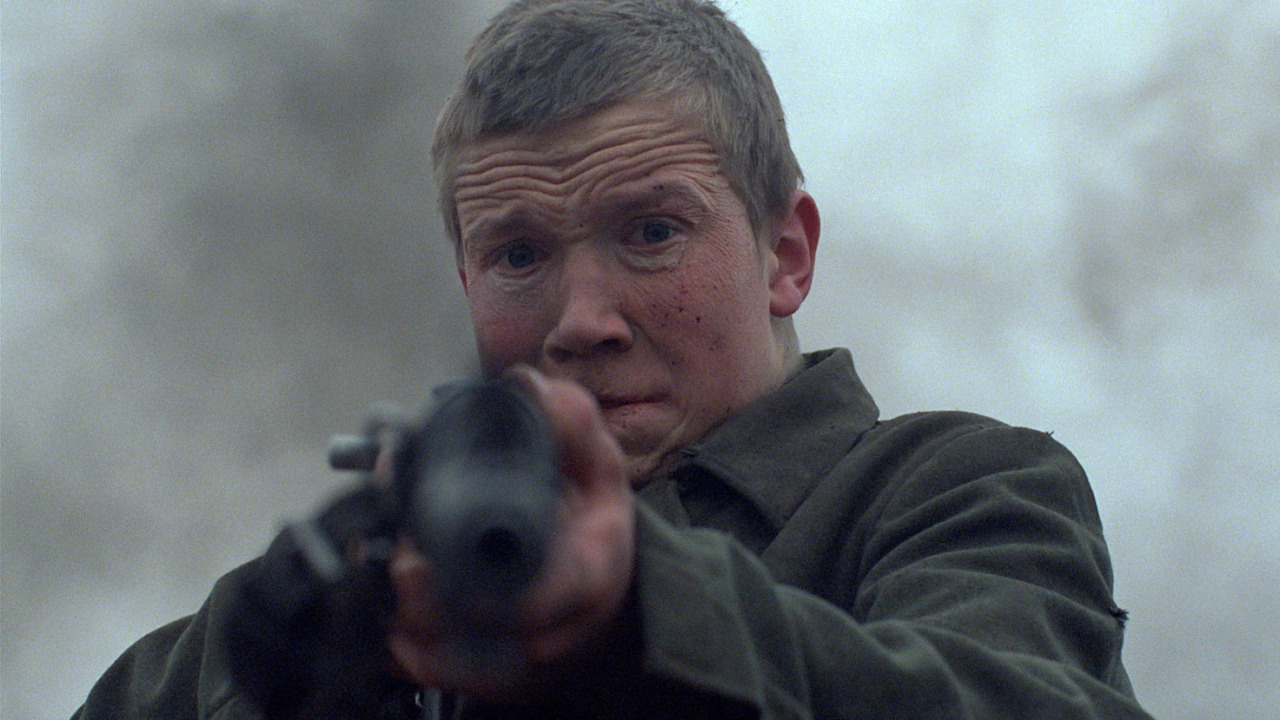Welcome back to Intermission, a spin-off podcast from The Film Stage Show. Led by yours truly, Michael Snydel, I invite a guest (or guests, in this case) to discuss an arthouse, foreign, or experimental film of their choice.
Warning: The episode features discussions about suicide. If you feel you are in crisis or know someone who is struggling, please call the National Suicide Prevention Lifeline. It is a free, 24-hour hotline at 1.800.273.TALK (8255).
For the eleventh episode, I switched up the format of the show a little bit and talked to both Charlie Nash, a contributor at Edge Media and various other publications, and his close friend, William Willoughby, a veteran who was kind enough to speak about the film’s relationship with his own PTSD, about Elem Klimov’s controversial and influential 1985 Russian anti-war film, Come and See––which is available on The Criterion Collection and to stream on The Criterion Channel. Klimov’s film is a staggering portrayal of the loss of innocence of an idealistic teenager during the Nazi occupation of Belarus during World War II.
True to its name, it’s less a traditional war film than a feature-length crucible for its young lead (played by Aleksei Kravchenko, whose hair did indeed turn gray during the arduous production), whose only remnants of childhood disappear long before he’s reduced to a sobbing mess as seen on the infamously imposing cover. But despite the endurance test reputation from its advocates and critics––it’s regularly featured as a poster child for “films that you’ll only ever want to see once” along with popular controversial choices like Salò, or the 120 Days of Sodom or Irreversible––it doesn’t resort to sensationalism despite the film’s effectively torrential presentation.
Come and See channels a different kind of unspeakable horror. A sensation that lingers not because of gore or the brutality, but because Klimov and his performers so deftly evoke the consuming psychic disruption of war. That’s in large part thanks to the sound design––a maelstrom of jagged noise, silence, melodramatic inner and outer monologues, diegetic folk and classical music, and unceasing crying. It also doesn’t feel constricted by the usual expectations of the standard war film and its stampeding self-importance or worries about not showing battles as heroic.
That last suggestion is the starting point for today’s podcast conversation as Charlie and Will first talk about their complex and extreme emotional reactions to the film before we all deconstruct what makes a war film effective and how many American films fail in that respect. It’s a frank, difficult conversation, but one that I hope communicates the ways Come and See feels truly singular.
Intermission episodes are shared exclusively with our Patreon community before being posted to The Film Stage Show’s main feed. One can also enter our giveaways, get access to our private Slack channel, and support new episodes by becoming a Patreon contributor. For a limited time, all new Patreon supporters will receive a free Blu-ray/DVD. After becoming a contributor, e-mail podcast@thefilmstage.com for an up-to-date list of available films.
Listen below and subscribe on iTunes, Spotify, Stitcher, or Overcast.
This episode of Intermission is presented by Film Movement Plus. Enjoy a world of cinema today on all your favorite devices by signing up today. Streaming special offer! Get a 30-day FREE trial plus 50% OFF your first 3 months! Sign up with promo code STAGE at www.filmmovementplus.com

